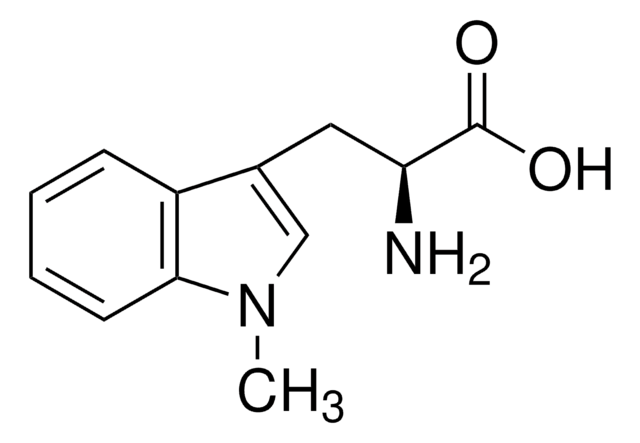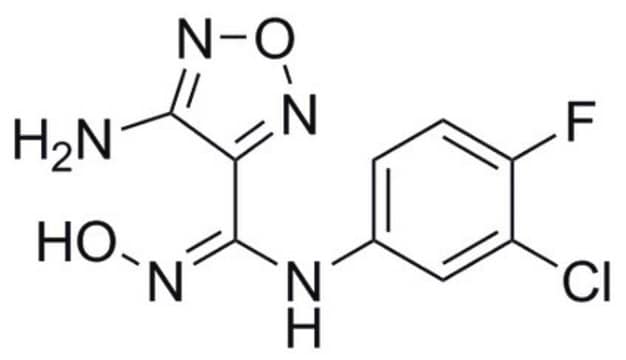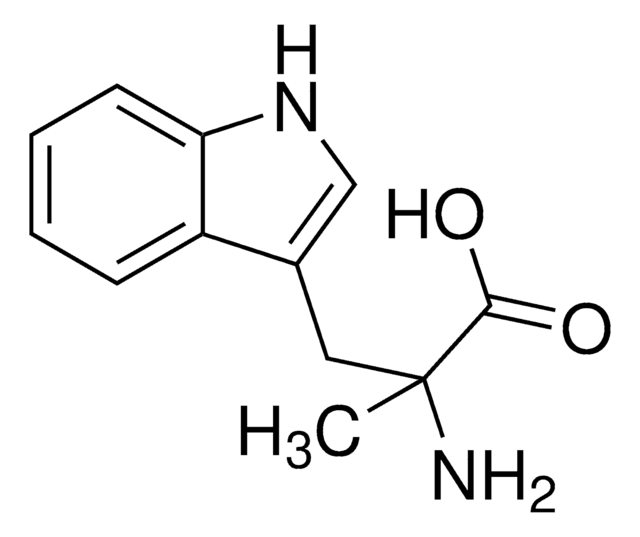452483
1-Methyl-D-tryptophan
95%, for peptide synthesis
Synonim(y):
(2R)-2-Amino-3-(1-methyl-1H-indol-3-yl)propanoic acid, D-(+)-1-Methyltryptophan
About This Item
Polecane produkty
product name
1-Methyl-D-tryptophan, 95%
Próba
95%
Postać
lumps and powder
aktywność optyczna
[α]22/D +12.4°, c = 2 in acetic acid
przydatność reakcji
reaction type: solution phase peptide synthesis
mp
242-245 °C (lit.)
Zastosowanie
peptide synthesis
ciąg SMILES
Cn1cc(C[C@@H](N)C(O)=O)c2ccccc12
InChI
1S/C12H14N2O2/c1-14-7-8(6-10(13)12(15)16)9-4-2-3-5-11(9)14/h2-5,7,10H,6,13H2,1H3,(H,15,16)/t10-/m1/s1
Klucz InChI
ZADWXFSZEAPBJS-SNVBAGLBSA-N
Powiązane kategorie
Zastosowanie
Kod klasy składowania
11 - Combustible Solids
Klasa zagrożenia wodnego (WGK)
WGK 3
Temperatura zapłonu (°F)
Not applicable
Temperatura zapłonu (°C)
Not applicable
Certyfikaty analizy (CoA)
Poszukaj Certyfikaty analizy (CoA), wpisując numer partii/serii produktów. Numery serii i partii można znaleźć na etykiecie produktu po słowach „seria” lub „partia”.
Masz już ten produkt?
Dokumenty związane z niedawno zakupionymi produktami zostały zamieszczone w Bibliotece dokumentów.
Klienci oglądali również te produkty
Nasz zespół naukowców ma doświadczenie we wszystkich obszarach badań, w tym w naukach przyrodniczych, materiałoznawstwie, syntezie chemicznej, chromatografii, analityce i wielu innych dziedzinach.
Skontaktuj się z zespołem ds. pomocy technicznej











